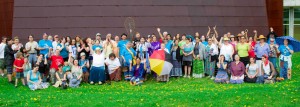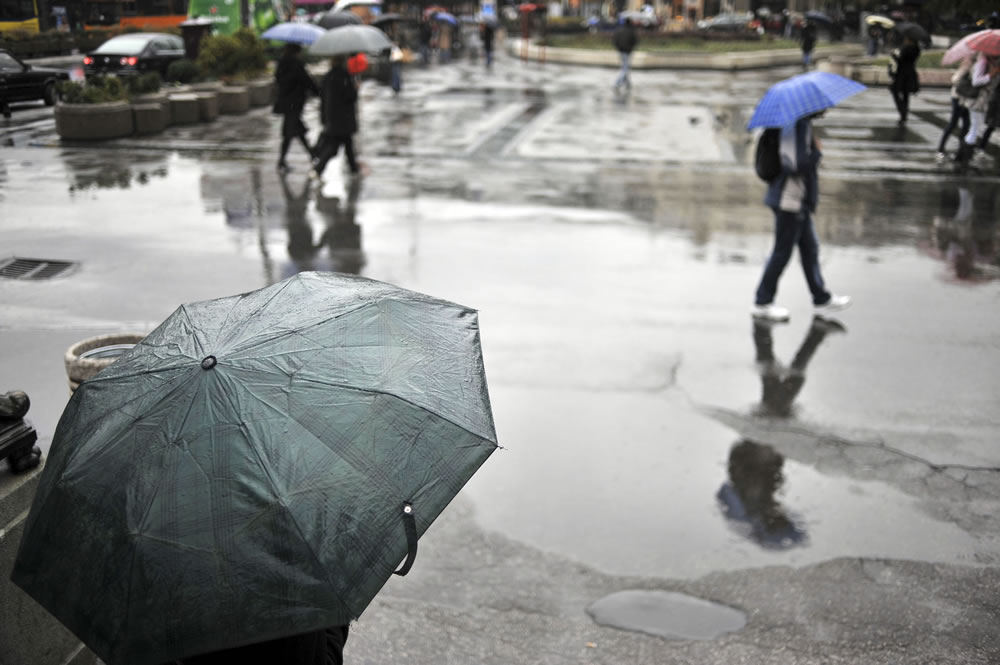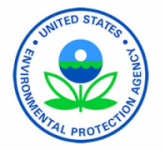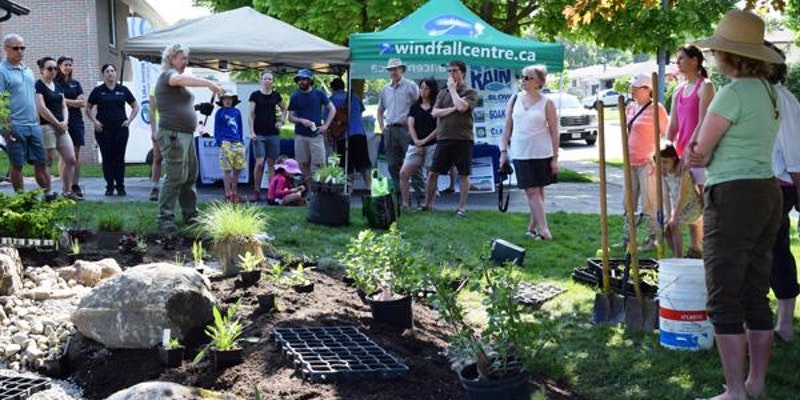Webinar: Sacred Water Circle

This is the first webinar of a series: “Trying to get it right: Indigenous and non-Indigenous alliances working for a better environment”, hosted by Green Communities Canada. In the webinar series we will hear from partners, Indigenous and non-Indigenous, who have worked together to achieve a unified environmental goal. This particular webinar will be presented by Dorothy Taylor and Cathy Mitchell on the project called Sacred Water Circle. Register or learn more about the webinar series.
Related events
-
 2017/10/17 11:00 AM - 2017/10/17 12:00 PM
2017/10/17 11:00 AM - 2017/10/17 12:00 PMAre you working to reduce urban flood risk in Ontario? Whether you’re with a municipality, other level of government, private business, conservation authority, insurance industry, nonprofit organization or an interested citizen, join us for this webinar where you will be presented with an overview of the collective impact initiative to reduce urban flood risk in Ontario and how you can get involved. You will also learn about preliminary results and key themes gleaned from interviews with over 20 key stakeholders across sectors on what is being done and what needs to happen to address this issue. This webinar is hosted by Green Communities Canada with support from the Ontario Trillium Foundation. Register now - it's free!
-
 2018/01/10 1:00 PM - 2018/01/10 2:15 PM
2018/01/10 1:00 PM - 2018/01/10 2:15 PMThe water quality benefits of forests are widely accepted, yet very few studies have successfully quantified the runoff and pollutant-reducing impacts of trees in the urban landscape. Uncertainty as to how to "credit" urban trees - everything from individual street trees up to small patches of forest - for runoff and pollutant load reduction has hampered their use as a stormwater best management practice (BMP). Hosted by the US Forest Service, Karen Cappiella and Justin Hynicka will review the available stormwater crediting systems for urban tree planting and will present a new crediting system that can be integrated into state and local compliance systems for stormwater management, Total Maximum Daily Loads (TMDLs), and other water quality requirements. The presenters will share a case study example of how this crediting framework has been formally adopted by state and federal agencies as part of the Chesapeake Bay TMDL, which covers 64,000 square miles across six states and DC. Connect to the webinar. It's free!
-
 2018/01/18 2:00 PM - 2018/01/18 3:00 PM
2018/01/18 2:00 PM - 2018/01/18 3:00 PMHost by the US EPA this webinar presents information about the addition of a Cost Module and a Mobile Web App in the National Stormwater Calculator for managing runoff using green infrastructure. Learn more and register.
-
 2018/01/24 1:00 PM - 2018/01/24 2:30 PM
2018/01/24 1:00 PM - 2018/01/24 2:30 PMThe webinar will focus on how and why porous asphalt was chosen for use in Downtown Provincetown, Massachusetts, and the successful application of this innovative approach for stormwater management to improve beach water quality and promote tourism. Learn more and register online.
-
 2018/01/30 1:00 PM - 2018/01/30 2:15 PM
2018/01/30 1:00 PM - 2018/01/30 2:15 PMThis webinar is intended for municipal staff, consultants, or politicians who are interested in learning more about what works and what doesn’t in engaging the community around implementing a successful stormwater user fee. Participants will learn from the experience of the Town of Newmarket in Ontario. It's free. Learn more and reserve your spot.
-
 2018/02/21 1:00 PM - 2018/02/21 2:00 PM
2018/02/21 1:00 PM - 2018/02/21 2:00 PMThis is the second webinar of a series: “Trying to get it right: Indigenous and non-Indigenous alliances working for a better environment”, hosted by Green Communities Canada. In the webinar series we will hear from partners, Indigenous and non-Indigenous, who have worked together to achieve a unified environmental goal. This particular webinar will be presented by Mary Alikakos and Tara Tchir on the project called "Antler River Guardians from the 4 Directions." Register or learn more about the webinar series
-
 2018/02/22 1:00 PM - 2018/02/22 2:00 PM
2018/02/22 1:00 PM - 2018/02/22 2:00 PMDeveloped by Lake Simcoe Region Conservation Authority, Toronto and Region Conservation, and Credit Valley Conservation, the Low Impact Development (LID) Treatment Train Tool (TTT) is an exciting new open-source tool created to help developers, consultants, municipalities and landowners better understand, plan and implement sustainable stormwater practices. The tool can be used right from the conceptual-level planning stage of site development and retrofits for iterative design of LID placement and sizing. This webinar is intended for stormwater management practitioners, developers, LID designers, CA staff, water resources engineers, municipal staff, landscape architects and planners. Learn more and register online.
-
 2018/03/21 1:00 PM - 2018/03/21 2:00 PM
2018/03/21 1:00 PM - 2018/03/21 2:00 PMThis is the second webinar of a series: “Trying to get it right: Indigenous and non-Indigenous alliances working for a better environment”, hosted by Green Communities Canada. In the webinar series we will hear from partners, Indigenous and non-Indigenous, who have worked together to achieve a unified environmental goal. This particular webinar will be presented by Kerry-Ann Charles and Jackie Richard on the project called "Climate Adaptation Planning within the Chippewas of Georgina island First Nation Reserve". Register or learn more about the webinar series.
